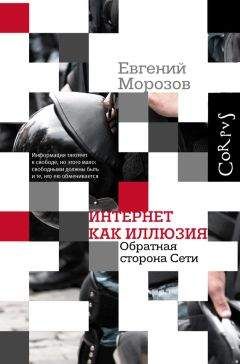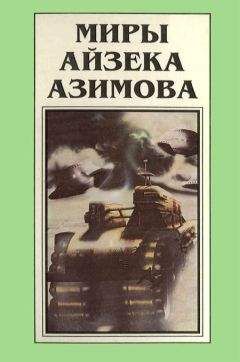Harley, Jonathan Race Riots Erupt in Sydney // The 7:30 Report.
Australian Broadcasting Corporation, December 12, 2005. Herrera, G. L. Technology and International Systems // Millennium:
Journal of International Studies 32, no. 3 (2003): 559.
Herold, D. K. Development of a Civic Society Online? Internet Vigi-lantism and State Control in Chinese Cyberspace // Asian Journal of Global Studies 2, no. 1 (2008): 26–37.
Hess, S. Dividing and Conquering the Shop Floor: Uyghur Labour Ex-port and Labour Segmentation in China’s Industrial East // Central Asian Survey 28, no. 4 (2009): 403–416.
Holmes, S. What Russia Teaches Us Now: How Weak States Threaten Freedom // American Prospect (1997): 30–39.
Huang, Annie Taiwanese Offer Ancestors Paper Ferraris, iPhones // Associated Press, April 2, 2010.
India’s Youth Hit the Web to Worship // BBC News, February 8, 2007. Internet Fuels Philippine Election Smear Campaigns // Agence France-
Presse, April 14, 2010.
Kaplan, C. The Biopolitics of Technoculture in the Mumbai Attacks // Theory, Culture & Society 26, nos. 7–8 (2009): 301.
Kapor, Mitchell Where Is the Digital Highway Really Heading? // Wired, August 1993.
Keenan, T. Mobilizing Shame // South Atlantic Quarterly 103, nos. 2–3 (2004): 435.
Keenan, T. Publicity and Indifference (Sarajevo on Television) // Pub-lications of the Modern Language Association of America 117, no. 1 (2002): 104–116.
Kennan, George F. Somalia, Through a Glass Darkly // New York Times, September 30, 1993.
Kenya Election Violence Witnesses Get Death Threats // BBC News, January 6, 2010.
Kerr, O. S. Enforcing Law Online // University of Chicago Law Re-view 74, no. 2 (2007): 745–760.
Kimmelman, Michael New Weapons in Europe’s Culture Wars // New York Times, January 17, 2010.
Koreans Cyber Attack Japanese Site for Anti-Korean Posts // Yonhap News Agency, March 1, 2010.
Kurlantzick, Josh China’s Next-Generation Nationalists // Los Angeles Times, May 6, 2008.
Lee, Jiyeon Witch Hunting on the Web: The Latest Korean Fad? // Global Post, January 6, 2010. www.globalpost.com/dispatch/ south-korea/ 091230/witch-hunting-web-trend.
Lee, Tae-hoon Lawmaker Calls for Stricter Access to NK Sites // Korea Times, October 6, 2009.
Lewis, Leo Google Earth Maps Out Discrimination Against Buraku-min Caste in Japan // Times of London, May 22, 2009.
Linde, Steve Israel’s Newest PR Weapon: The Internet Megaphone // Jerusalem Post, November 28, 2006.
Lord, Kristin M. The Perils and Promise of Global Transparency: Why the Information Revolution May Not Lead to Security, Democ-racy, or Peace. Albany: State University of New York Press, 2006.
Loveless, M. The Theory of International Media Diffusion: Political Socialization and International Media in Transitional Democracies // Studies in Comparative International Development 44, no. 2 (2009): 118–136.
Mann, M. The Autonomous Power of the State: Its Origins, Mechanisms and Results // The State: Critical Concepts 25 (1994): 331.
Mann, M. Has Globalization Ended the Rise and Rise of the Nation-State? // Review of International Political Economy 4, no. 3 (1997): 472–496.
Mann, M. Infrastructural Power Revisited // Studies in Comparative International Development 43, no. 3 (2008): 355–365.
March, Stephanie South Korea Tries to Curb Internet Addiction // Radio Australia, April 5, 2010.
Mathiason, J. Internet Governance Wars: The Realists Strike Back // International Studies Review 9, no. 1 (2007): 152–155.
McCarthy, Michael, and Kevin Rawlinson Internet Trade
Driving Rare Salamander to Extinction // Independent, March 17, 2010. McLuhan, Marshall Understanding Media: The Extensions of Man.
New York: McGraw-Hill, 1964.
Melleuish, G., Sheiko, K., and S. Brown Pseudo History/Weird History: Nationalism and the Internet // History Compass 7, no. 6 (2009): 1484–1495.
Miller, Michael E. Mexico Considers Clamping Down on Twitter // Global Post, February 2, 2010. www.globalpost.com/dispatch/ mexico/100128/twitter-crackdown.
Morozov, Evgeny Citizen War-Reporter? The Caucasus Test // Open-Democracy, August 18, 2008. www.opendemocracy.net/article/ citizen-war-reporter.
Negroponte, Nicholas Being Digital. New York: Knopf, 1995. Nicholson, Sophie Internet Spreads Mexico Drug Gang Fears //
Agence France-Presse, April 26, 2010. “No Rapes” in Riot Town // Radio Free Asia, June 29, 2009. Nossiter, Adam Nigerians Recount Night of Their Bloody Revenge //
New York Times, March 10, 2010.
Nyiri, P., Zhang, J., and M. Varrall China’s Cosmopolitan Na-tionalists: “Heroes” and “Traitors” of the 2008 Olympics // China Journal 63 (2010): 25.
O’Hara, K., and D. Stevens The Devil’s Long Tail: Religious Moderation and Extremism on the Web // IEEE Intelligent Systems 24, no. 6 (2009): 37–43.
Osnos, E. Angry Youth: The New Generation’s Neocon Nationalists // New Yorker 28 (2008).
Pallaris, C., Costigan, S. S., and W. B. I. Calcutta Shared Knowledge, Joint Pursuits: International Relations Beyond the Age of Information. Working Paper, May 24, 2010.
Peoples, C. Technology, Philosophy and International Relations // Cam-bridge Review of International Affairs 22, no. 4 (2009): 559–561. Perritt, H. H., Jr. The Internet as a Threat to Sovereignty: Thoughts on the Internet’s Role in Strengthening National and Global Go-vernance // Indiana Journal of Global Legal Studies 5 (1997): 423.
Police Fail to Protect Victims of Neo-Nazi Threats // Prague Monitor, Sep-tember 14, 2009.
Price, M. E. End of Television and Foreign Policy // Annals of the Amer-ican Academy of Political and Social Science 625, no. 1 (2009): 196.
Putnam, R. D. Bowling Alone: The Collapse and Revival of American Community. New York: Simon & Schuster, 2001.
Quarantelli, E. L. Problematical Aspects of the Information / Com-munication Revolution for Disaster Planning and Research: Ten Non-technical Issues and Questions // Disaster Prevention and Management 6, no. 2 (1997): 94–106.
Querengesser, Tim Cellphones Spread Kenyans’ Messages of Hate // Globe and Mail, February 29, 2008.
Rafael, V. L. The Cell Phone and the Crowd: Messianic Politics in the
Contemporary Philippines // Public Culture 15, no. 3 (2003): 399. Rose, N., and P. Miller Political Power Beyond the State: Prob-lematics of Government // British Journal of Sociology 43, no. 2 (1992): 173–205.
Rubio, M. Perverse Social Capital: Some Evidence from Colombia // Journal of Economic Issues 31, no. 3 (1997): 805–816.
Saunders, R. A. Denationalized Digerati in the Virtual Near Abroad: The Internet’s Paradoxical Impact on National Identity Among Mino-rity Russians // Global Media and Communication 2, no. 1 (2006): 43.
Saunders, R. A. Nationality: Cyber-Russian // Russia in Global Af-fairs 2, no. 4 (2004): 156.
Saunders, R. A., and S. Ding Digital Dragons and Cybernetic Bears: Comparing the Overseas Chinese and Near Abroad Russian Web Communities // Nationalism and Ethnic Politics 12, no. 2 (2006): 255–290.
Scheuerman, William E. Liberal Democracy and the Empire of Speed // Polity 34, no. 1 (2001): 41–67.
Scheuerman, William E. Liberal Democracy and the Social Acceleration of Time. Baltimore: John Hopkins University Press, 2004.
Scheuerman, William E. Realism and the Critique of Technology // Cambridge Review of International Affairs 22, no. 4 (2009): 563–584.
Schleifer, Yigal Turkey: The Internet Helps Some Rural Men Prac-tice Polygamy // EurasiaNet.org, October 22, 2009. www.eurasian-et.org/departments/insightb/articles/eav102309a.shtml.
Schlesinger, A., Jr. Has Democracy a Future? // Foreign Affairs 76, no. 5 (1997): 2–12.
Schuler, I. SMS as a Tool in Election Observation // Innovations (2008). Selinger, E. Towards a Reflexive Framework for Development: Tech-nology Transfer After the Empirical Turn // Synthese 168, no. 3 (2009): 377–403.
Sisci, Francesco Who Is Hitting at Hu? // Asia Times Online,
July 24, 2009. www.atimes.com/atimes/China/KG24Ad01.html. Soifer, H., and M. vom Hau Unpacking the Strength of the State:
The Utility of State Infrastructural Power // Studies in Comparative International Development 43, no. 3 (2008): 219–230.
Somalia’s Text Message Insurgency // BBC News, March 16, 2009. Spitulnik, D. Anthropology and Mass Media // Annual Review of
Anthropology 22, no. 1 (1993): 293–315.
Streeten, P. Reflections on Social and Antisocial Capital // Journal of
Human Development and Capabilities 3, no. 1 (2002): 7–22. Suleymanova, Dilyara Tatar Groups in Vkontakte // Digital
Icons 1, no. 2 (2009).
Tamir, Y. The Enigma of Nationalism // World Politics 47, no. 3 (1995): 418–440.
Tehranian, M. Communication and Revolution in Iran: The Passing of a Paradigm // Iranian Studies 13, no. 1 (1980): 5–30.
Traffic Bribery Goes Underground // Daily Nation, October 29, 2009. Trofimov, Y. Taliban Force Cellphone Shutdown in Afghanistan //
Wall Street Journal March 22, 2010.
Trouillot, M. R. The Anthropology of the State in the Age of Globalization // Current Anthropology 42, no. 1 (2001).
Waisbord, S. Democratic Journalism and Statelessness // Political Communication 24, no. 2 (2007): 115–129.
Walby, S. The Myth of the Nation-State: Theorizing Society and Polities in a Global Era // Sociology 37, no. 3 (2003): 529.
Warf, B., and J. Grimes Counterhegemonic Discourses and the In-ternet // Geographical Review 87, no. 2 (1997): 259–274.
Warren, M. E. Social Capital and Corruption. Presentation at Social Capital: Interdisciplinary Perspectives, EURESCO Conference on Social Capital, September 15–20, 2001.
Watts, J. Old Suspicions Magnified Mistrust into Ethnic Riots in Urumqi // Guardian, July 10, 2009.
Weiss, L. Globalization and National Governance: Antinomy or Interdependence? // Review of International Studies 25 (1999): 59–88.
Weiss, L. Globalization and the Myth of the Powerless State // New Left Review 225 (1997): 3–27.
Weiss, L. The Myth of the Powerless State. Ithaca, NY: Cornell Univer-sity Press, 1998.
Zuev, D. The Movement Against Illegal Immigration: Analysis of the Central Node in the Russian Extreme-Right Movement // Nations and Nationalism 16, no. 2 (2010): 261–284.
Глава 10. История – это не только меню браузера
Achterhuis, H., ed. American Philosophy of Technology: The Em-pirical Turn. Bloomington: Indiana University Press, 2001.
Adas, M. Machines as the Measure of Men: Science, Technology, and
Ideologies of Western Dominance. Ithaca, NY: Cornell University Press, 1990.
Alexander, J. The Sacred and Profane Information Machine: Dis-course About the Computer as Ideology // Archives de sciences so-ciales des religions 35, no. 69 (1990): 161–171.
Alvarez, M. R. Modern Technology and Technological Determinism:
The Empire Strikes Again // Bulletin of Science, Technology & So-ciety 19, no. 5 (1999): 403.
Armitage, J. Resisting the Neoliberal Discourse of Technology: The Po-litics of Cyberculture in the Age of the Virtual Class // CTHEORY 1 (1999).
Balabanian, N. On the Presumed Neutrality of Technology // IEEE
Technology and Society Magazine 25, no. 4 (2006): 15–25. Barbrook, R., and A. Cameron The Californian Ideology // Science as Culture 6, no. 1 (1996): 44–72.
Barley, S. R. What Can We Learn from the History of Technology? //
Journal of Engineering and Technology Management 15, no. 4 (1998): 237–255.
Behringer, W. Introduction: Communication in Historiography //
German History 24, no. 3 (2006): 325.
Beniger, J. R. Control Revolution: Technological and Economic Ori-gins of the Information Society. Cambridge, MA: Harvard University Press, 1989.
Bijker, W. E., Hughes, T. P., and T. J. Pinch, eds. The So-cial Construction of Technological Systems: New Directions in the Sociology and History of Technology. Cambridge, MA: MIT Press, 1989.
Bimber, B. Karl Marx and the Three Faces of Technological Determi-nism // Social Studies of Science (1990): 333–351.
Blondheim, M. News over the Wires: The Telegraph and the Flow of Public Information in America, 1844–1897. Cambridge, MA: Harvard University Press, 1994.
Boccaccio, G. The Decameron, Vol. 1. New York: Modern Library, 1955.
Boorstin, D. J. The Republic of Technology. New York: HarperCol-lins, 1979.
Briggs, A., and P. Burke A Social History of the Media: From
Gutenberg to the Internet. 2nd ed. Malden, MA: Polity, 2005. Cardwell, D. Wheels, Clocks, and Rockets: A History of Technology.
New York: W. W. Norton, 1995.
Carey, J., and J. J. Quirk The Mythos of the Electronic Revolution // American Scholar 39, no. 1 (1970).
Carnes, M. C. The Columbia History of Post-World War II America. New York: Columbia University Press, 2007.
Ceruzzi, P. E. Moore’s Law and Technological Determinism // Tech-nology and Culture 46, no. 3 (2005): 584–593.
Comor, E. Harold Innis and “the Bias of Communication” // Infor-mation, Communication and Society 4, no. 2 (2001): 274–294. Corn, J. J. The Winged Gospel: America’s Romance with Aviation.





